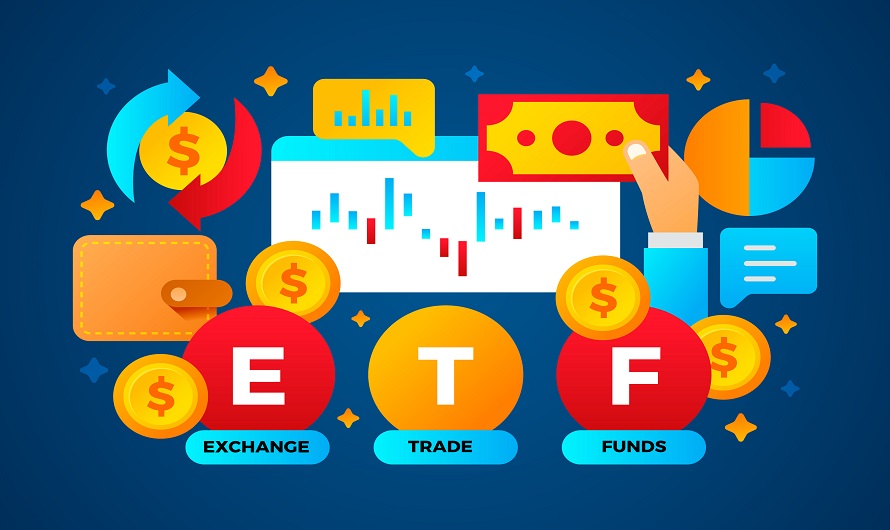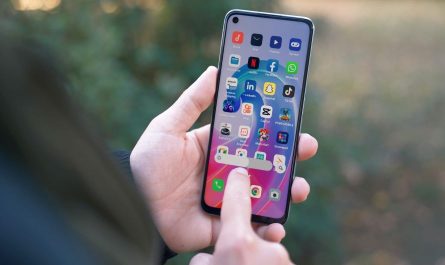Saving money is an important habit that all of us need to inculcate in our daily lives. Your savings can come in handy when you are making a big purchase, or during emergencies. However, saving up is not quite easy all the time. That is why, it is quite necessary that we make use of the many financial instruments around us. Now, in addition to saving money, it is also important that you invest a small amount of your monthly income into schemes that help you earn money over the longer term. In this blog, we will understand the basic differences between ETF vs mutual funds and find out which one is best.
But, before we consider the differences between ETFs and mutual funds, let us have a closer look at the definition of ETFs.
What is an ETF?
The word ETF stands for exchange traded fund. An ETF is a form of investment that is pooled and can be quite similar to a mutual fund. That is why, it is common for people to think ‘are ETFs mutual funds’? However, while there may be some similarities, there does exist a difference.
ETFs are used to track a batch of commodities, sector, index or others. But, unlike the regular mutual funds, it can be easily purchased or sold on a stock exchange. Therefore, you can treat an ETF just the way you would treat a stock. Just as stock prices, the prices of ETFs will also keep changing as people trade all day round. One of the benefits of buying ETFs is that you have to pay a much lower broker commission than what you would have to pay in case you bought these stocks separately.
Now, while we compare mutual funds and ETFs, let us look at the definition of mutual funds.
What is a mutual fund?
In the case of a mutual fund, you get a group of investors who invest into a fund. These investors have a similar set of risk appetite, which makes it easier for the banks to group them together. The money that is pooled by all the investors is put across a wide variety of securities and assets. Now, this specific investment pool is managed by a certain fund manager, who assesses the current market situations and decides which are the best avenues to build the client’s wealth over the long term.
These fund managers are thorough professionals who have an in-depth knowledge of the market behaviours and the various other practices within the industry. As a result, when you put your money in their hands, you can be quite sure that they will deliver upon the handsome returns that they promise.
Difference between ETF and mutual funds
Coming to the main question, the difference between mutual fund and exchange-traded fund is really not that large. Here are some differences between the two that will help you draw a clear line between these two popular investment schemes:
ETFs can be actively bought and sold, unlike MFs
You should note down that you can buy and sell your ETFs quite easily. Since it tracks a couple of stocks or indexes, the whole process is overall quite similar. That is why, ETFs can be actively traded. However, that is not so when it comes to mutual funds. When you purchase a mutual fund, you can only buy a unit of the mutual fund from the specific fund house that you have chosen.
Lock in period for ETFs and Mutual Funds
ETFs usually do not have any form of lock-in period that you have to adhere to. Investors can go in, purchase and sell their ETFs whenever they desire, at their own convenience. On the other hand, this is not the case with mutual funds. They have a minimum lock-in period, that you have to follow. In addition, if you wish to sell your mutual fund units before this period, you might be asked to pay a penalty.
Trackers for ETFs and Mutual Funds
An ETF is just a passive investment tracker that follows other indexes or commodities. Whereas a mutual fund is actively managed by qualified professionals who have been well trained to excel in this department. Their aim is to build a better return for their clients, and they dedicate a lot of time towards it.
Now, if you are looking to buy mutual funds from an app, then we suggest you try out the Airtel Thanks app. You can get a variety of financial services here. Also, you can use it to make online payments, and finally, reduce your dependency on cash.
In addition, you can also use Airtel Thanks to do a mobile recharge, utility bill payments, and a lot more. Hence, download the Airtel Thanks and explore these features right away!
FAQs : ETFs and Mutual Funds
Is ETF better than mutual funds?
ETF is better as it is more liquid. However, there is greater regulatory control over mutual funds, and you get expert advice too. Therefore, it is up to you.
Are ETFs good for long-term investments?
Yes, ETFs are a great instrument if you are looking to get long-term investments. They provide a broad exposure and also let investors diversify quite quickly.
Should I switch from mutual funds to ETFs?
You should only switch from one financial instrument to another if you feel that your needs are no longer being met. For some, ETFs can be better because the expenses with MFs can reduce their profits.


 Get App
Get App  Airtel Store
Airtel Store  Login
Login 


